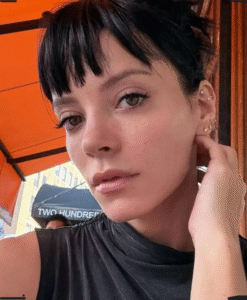Lily Allen Sparks Intense Debate After Sharing Personal Experience With Abortions

British singer Lily Allen has stirred both praise and criticism after opening up on her podcast Miss Me? about having had multiple abortions — so many, she says, that she no longer remembers the exact number.
The 40-year-old artist discussed the topic candidly with her co-host and longtime friend Miquita Oliver. “I’ve had a few,” Allen said, adding, “I want to say four or five, but I honestly can’t remember.” Oliver then revealed she had experienced “about five” herself.
Their frank conversation quickly gained attention online, triggering a wave of divided reactions. Many applauded Allen for her raw honesty in a society that often pressures women to justify their reproductive choices. Others, however, criticized her tone, calling the comments “irresponsible” or dismissive of the gravity of abortion.
Anticipating backlash, Allen went on to reflect on one of her experiences. She described a moment when a man paid for her procedure, which she initially interpreted as a gesture of care. “I thought it was romantic at the time,” she said. “Looking back, he didn’t even check in with me afterward.”

Allen’s frustration, however, wasn’t only directed at individual behavior — she took aim at the broader societal expectations surrounding abortion. “I get annoyed when people try to defend abortion by saying things like, ‘She had a medical reason’ or ‘It was a complicated pregnancy,’” she said. “Why can’t it just be: ‘I’m not ready to have a baby right now’? That should be enough.”
While Allen’s casual and humorous delivery unsettled some listeners, others saw it as a bold move to normalize conversations around reproductive rights. Researcher Alison Wilson, writing for Metro, noted that people might feel more comfortable if Allen had expressed regret. “We seem to want women to show remorse before we let them speak,” Wilson wrote. “But being pro-choice means supporting the right to choose — not only the choices that make others feel at ease.”
Allen’s message wasn’t about encouraging abortion, nor was she trying to make a political statement. She was simply recounting her own lived experiences — unapologetically and honestly. And for many supporters, that kind of transparency is what true reproductive autonomy looks like.